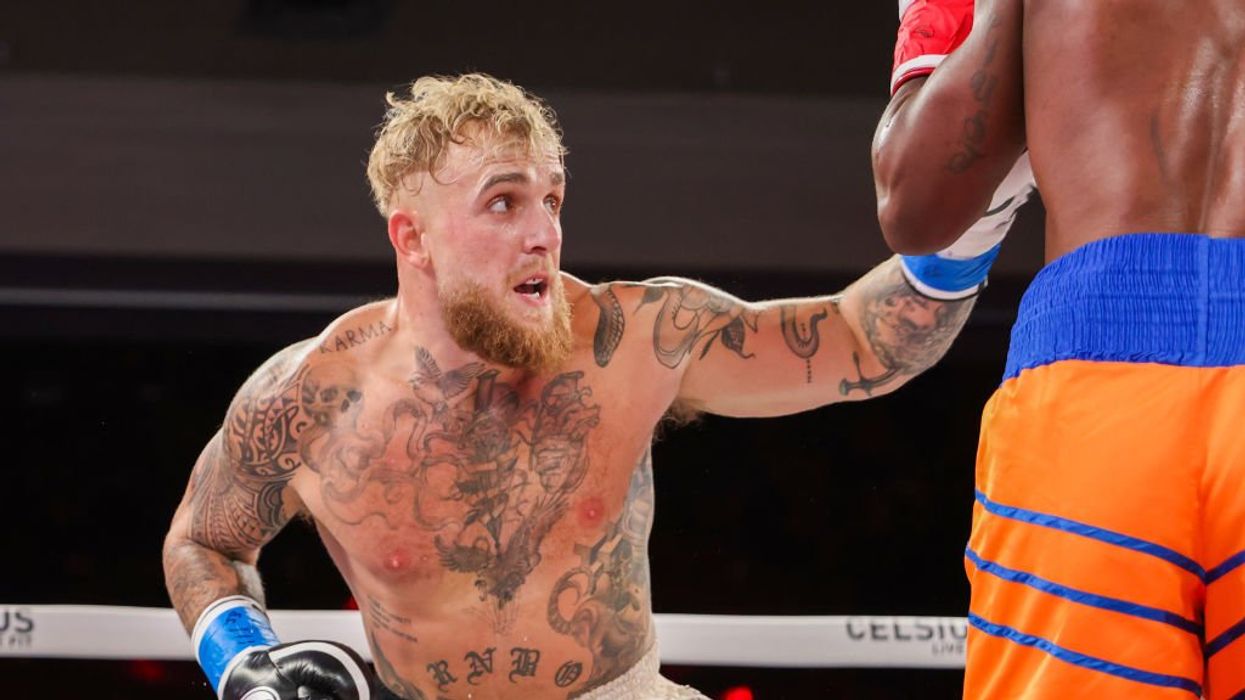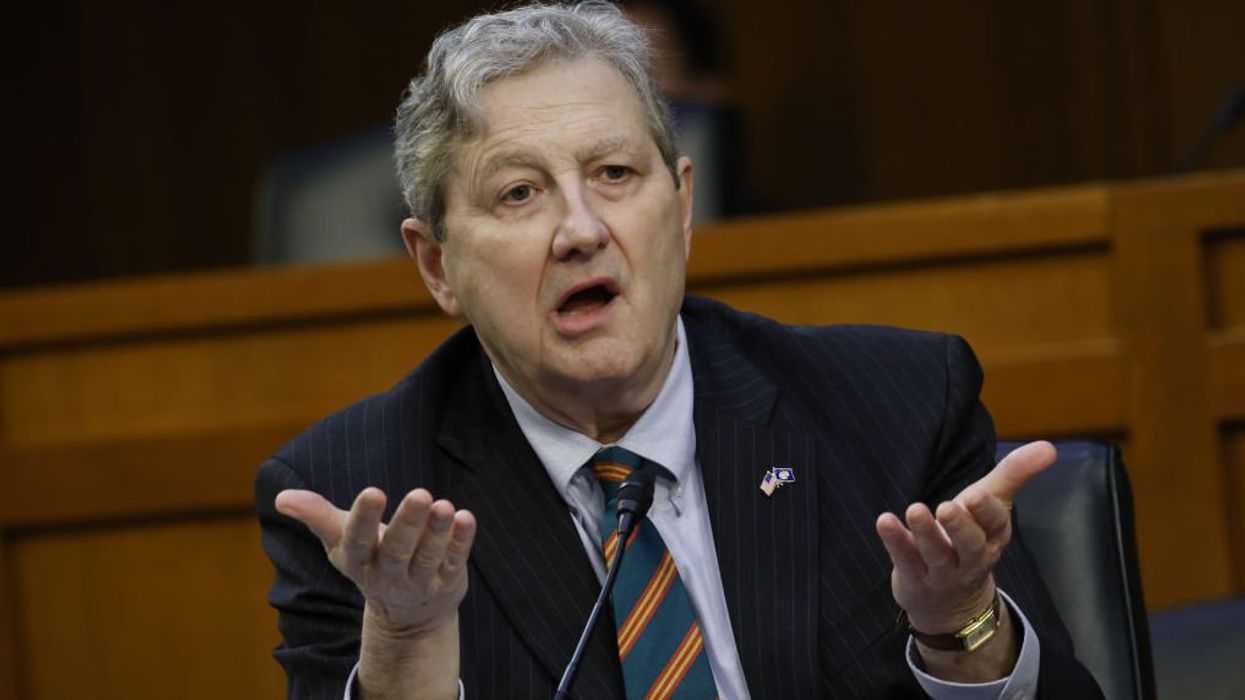A Michigan ice cream truck operator alleged to have participated in the killing of two Irish United Nations peacekeepers in his native Lebanon more than three decades ago has been arrested over an immigration violation stemming from entering the U.S. with a passport that wasn’t his, the Detroit Free Press reported.
Two eyewitnesses — a former Irish U.N. peacekeeper and a former Beirut correspondent for the Associated Press — said 71-year-old Mahmoud Bazzi of Dearborn shot the peacekeepers in 1980.
The Detroit Free Press ran an investigative report based on interviews with all of the main players in the drama who are still alive, including the relatives of those killed, U.S. government officials and Bazzi.
 In this June 16, 2014 photo, Mahmoud Bazzi, whom the Irish government calls a suspect in the abduction, torture and killing of two Irish soldiers serving as United Nations peacekeepers in Lebanon 34 years ago, speaks at his home in Dearborn, Mich. Bazzi was arrested Tuesday, July 15, 2014 by U.S. authorities at his Dearborn home for "administrative immigration violations" and not directly in connection to the killings in Lebanon, spokeswoman Gillian Christensen told The Associated Press. (AP Photo/Detroit Free Press, Brian Kaufman)
In this June 16, 2014 photo, Mahmoud Bazzi, whom the Irish government calls a suspect in the abduction, torture and killing of two Irish soldiers serving as United Nations peacekeepers in Lebanon 34 years ago, speaks at his home in Dearborn, Mich. Bazzi was arrested Tuesday, July 15, 2014 by U.S. authorities at his Dearborn home for "administrative immigration violations" and not directly in connection to the killings in Lebanon, spokeswoman Gillian Christensen told The Associated Press. (AP Photo/Detroit Free Press, Brian Kaufman)
During the interim years, U.S. authorities would occasionally inquire about the violent event, the witnesses said, but it wasn’t until last Tuesday that Homeland Security officers arrested Bazzi over an immigration violation after entering the U.S. 21 years ago with someone else’s passport, a charge that could have him deported back to Lebanon.
In 1980, Derek Smallhorne and Thomas Barrett of the Irish Defense Forces, assigned to the U.N. mission in Lebanon, were kidnapped, tortured, shot and killed. A third member of the force, John O’Mahony, was shot twice and survived.
U.S. officials would not tell the newspaper whether Bazzi would face charges in connection with the killings, but “the allegations of what happened in Lebanon factor heavily in our investigation and our efforts to remove him,” Khaalid Walls, spokesman for the Detroit office of U.S. Immigration and Customs Enforcement, said Friday.
The families of the victims want not just an immigration violation pursued, but justice.
Derek Smallhorne Jr., who was 9 when his father was killed said, “Do the right thing. … There has to be enough evidence there.”
A big piece of evidence was an impromptu televised confession he made decades ago, an admission Bazzi now says was untrue.
It was 34 years ago, amid the larger backdrop of warring factions in a Lebanon gripped by constant violence, that the Irish peacekeepers were tasked to join a convoy to an area of Lebanon controlled by a Christian militia.
Somewhere along the road, the convoy was stopped and the men were ordered to get out of their vehicles. One of the men who stopped the convoy was Bazzi, the survivor O’Mahony said.
Former AP reporter Steve Hindy, who was also with the convoy, told the Free Press that Bazzi, armed with a pistol, appeared to be in charge.
Everyone was then forced into trucks and were driven to an abandoned school. Hindy told the Free Press that Bazzi was “going on and on about ‘his brother, his brother. What had happened to his brother.’ He was holding his shirt ... and saying, ‘I’m in mourning,’ with the black clothing. ... It was then I began to realize, we were in trouble.”
The Detroit Free Press described the gruesome killings based on the survivor accounts it obtained:
Bazzi and another man took the Irish away from the bathroom, and forced them down a flight of stairs, O’Mahony said. And that’s when the shooting began.
“He shot me,” O’Mahony said. “I can still picture him. I can picture him as clear as you’re sitting in front of me. I can still picture Bazzi at the top of the steps, firing down at me. And when I looked back up at him a second time, he fired. ...
“He’s the man who shot me, period."
Barrett and Smallhorne weren’t shot, but were subsequently recaptured by other men outside the school, the eyewitnesses said.
O’Mahony was helicoptered to a hospital, while Hindy returned to the Beirut bureau. As he began writing his story, a bulletin came in that Smallhorne and Barrett had been found dead.
“The report from the U.N. said they had been shot execution-style,” Hindy said.
Hindy told the Free Press that military and diplomatic sources told him they had been tortured and shot, and partially skinned.
Barrett’s family said that his fingers were broken and he had a hatchet wound on one of his arms.
Bazzi now tells the Free Press that though he entered the U.S. using someone else’s passport, today he holds a valid green card which allows him to live and work in the U.S.
He has three daughters and a wife who are U.S. citizens and 23 other children in the Middle East, one of his daughters said.
The Free Press reported that in the days following the shootings, Bazzi spoke to journalists on camera and took credit for the killings, saying it was revenge for his brother’s death.
The Detroit Free Press reported:
Today, he says those words were lies. Bazzi said leaders of the Christian militia forced him to go before the cameras and lie.
“They said you have to come to the TV, and say that you took it out as revenge for your brother,” Bazzi said. “They threatened me. If I don’t say this, they will kill me.”
When told that Hindy has identified him as the abductor, Bazzi said: “That’s not correct. No, no, no.”
When told that O’Mahony identified him as the man who shot him, Bazzi shook his head. “God forbid, no. All this, this is not true. Not true."
Bazzi maintains that if he were deported to Lebanon, his life would be in danger, because he was once a member of a Christian militia that was aligned with Israel. Many Christian Lebanese militiamen fled Lebanon to Israel to escape revenge attacks by Hezbollah and other militants following Israel’s withdrawal from its northern neighbor.
Hindy, the AP reporter, told the Free Press: “He may be an old frail man. … But he was involved in something terrible that had horrible implications for two families in Ireland and that resonate to this day in Ireland. He’s got to assume responsibility for what he did.”
The AP reported Monday that Irish Defense Minister Simon Coveney welcomed Bazzi's arrest.
"I hope this is the start of a process to bring to justice the alleged perpetrator of what was a heinous crime, the torture and murder of two innocent Irish peacekeepers," Coveney said in a statement.
Read the full investigative report at the Detroit Free Press.




